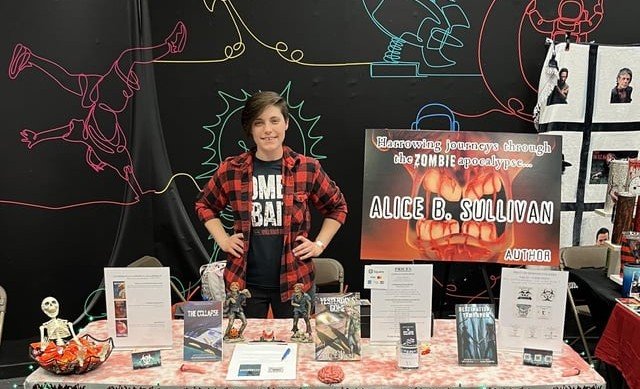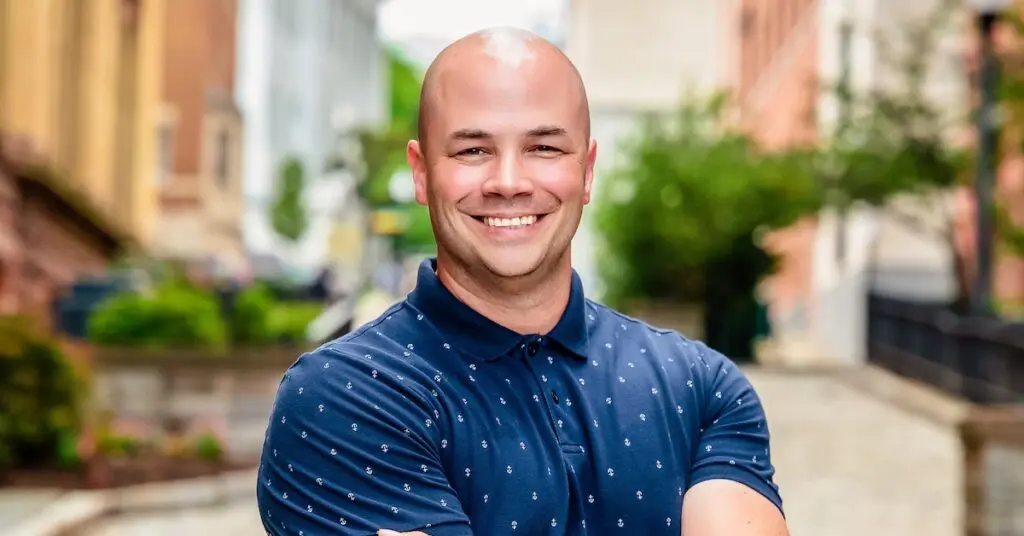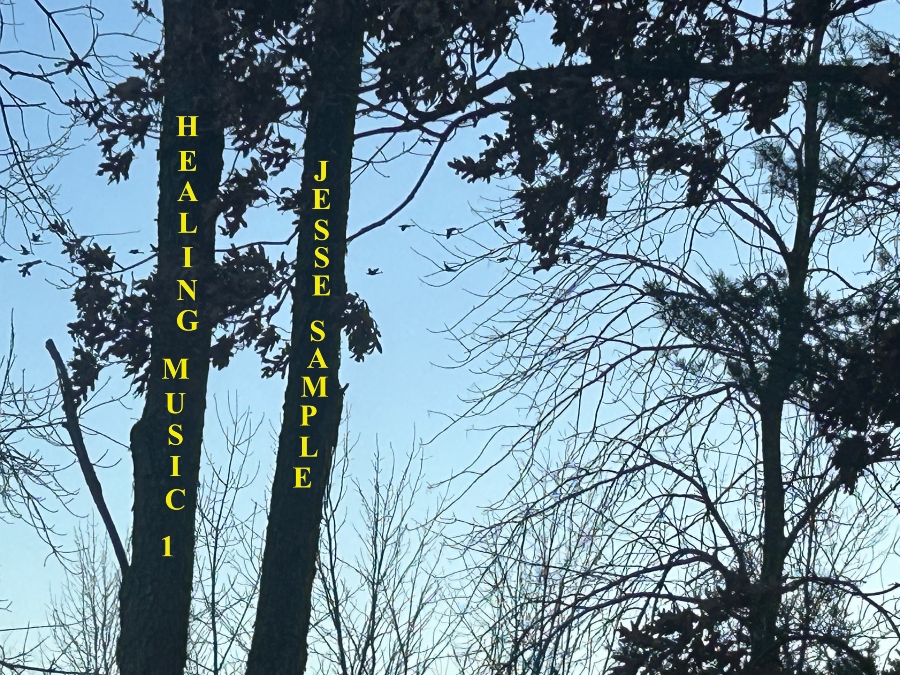Michael Francis McCarthy – An Xperience Interview
By Staff on November 13, 2024
Michael Francis McCarthy – Interview – Thanks for Asking! – by Liam Sweeny.
RRX: You play American roots music, and it seems obvious that there’s more to America than “North.” Because you mix Bolivian music in with Delta blues, distinctly known as organic American music. Where does Bolivian music fit in?
MM: Having spent the early part of my childhood in South America, I love Andean music, especially Bolivian folklore music, which is derived from Spanish classical but utilizes indigenous rhythm patterns, particularly the iconic “1/2/1-2-3” motif. Like bluegrass, Bolivian folklore is mountain music that adheres to certain rules and forms that you get to know. The chord progressions are epic and can be cross-pollinated with rock music over a pentatonic melodic bridge. I even hear crossover elements into metal, as a lover of golden era thrash. So when I put all this together, it allows me to infuse my roots playing with heavy palm muted rhythmic sections that adhere to some of those classic indigenous rhythmic elements, which I reinforce by stomping on my microphone stand with my boot during solo performances, in imitation of the bass drum & mallet accompaniment typical of Bolivian folklore music. I cover some songs by Bolivian folklore legends Savia Andina and Luis Rico, and I also incorporate some of those sound elements into my own writing.
I consider all stringed instrument folk music to flow from a common mother sound. If you cast wide enough and dig back far enough you can find the common ground between all forms of roots music. There’s nothing new under the sun; there are only so many ingredients you can work with. You have major chords, minor chords, variants within those two flavors of chords, and rhythms that, regardless of time signature, can be boiled down to intervals of one, two, or three, rendered in various patterns.
My music is American because I am American, because I was born and raised in the Americas, but the antecedents of my style come from Europe, and from other places still before.
RRX: You do a lot of shows in our area, three hours as the crows fly when they’re trying to cover the most ground. And you play on average once every couple of days. This is hard, because you don’t want any area to get oversaturated and lose interest. How do you keep that from happening?
MM: Great question. Avoiding oversaturation is certainly a challenge.
The answer is multifaceted:
I work hard to cast a wide net. By playing a radius of 3-4 hours around my home in all directions and also working some far-flung markets like Virginia and farther afield I can spread out my calendar. Over the next two months I’ll reach out to nearly a thousand establishments close enough for me to drive out to, perform and then drive home and sleep in my bed that night. Only a small percentage of them will actually book a show, but with that kind of volume and that wide a span of land, I keep pushing into new territory every year.
I have been informally rotating markets for years, but I’ve recently gotten strategic, identifying 12 larger Northeastern regional markets. I’m still fine-tuning it, but the idea is to hit each market four times a year, and then fill in the rest of the dates with small town shows. I do 100-125 shows a year.
The small town shows are key. I really believe in going out to a remote area, playing the local watering hole and giving people a really heartfelt performance. I find that small towns are very receptive to and appreciative of music.
Part of what allows me to do this is my choice of genre. Not all formats would work in all markets. Acoustic American roots music is uniquely universal in appeal, and it’s also very adaptable. “American roots” is such a wide umbrella; I can do deep delta blues, bluegrass, outlaw country, ’70s jam, folk music, Mexican/Bolivian/Cuban vibes…plus I can mix in other elements with any of those, like a little jazz or metal for flavoring. The wide appeal and malleability of my genre allows me to serve a wide range of audiences.
I never play a song that I don’t want to play, and if a gig feels stale, I know there are enough people and places out there looking for my music that I just move on down the road. If it’s boring to me then I will probably be projecting that boredom and it will be boring to them, so I just keep moving to greener pastures, of which there are many.
Lastly, part of why I don’t worry about saturation is that my goal is not really to get famous. There’s definitely something to be said for the strategic approach of doing something else for a living, only playing shows once in awhile, building as much hype as possible around those shows, and focusing heavily on capturing and disseminating media from those rare hyped up shows. If I was playing another genre, like metal for example, I would absolutely need to do that because there aren’t really opportunities for solo metal musicians to go get paid a living working class wage performing by themselves in down-home leisure establishments.
Big crowds are great, big stages feel good, but above all I view this as working class work and I relish the challenge of booking a kind of anonymous show in a new town, showing up and having to win over the crowd by blowing the roof off the joint.
I stay on the move and try not to get stuck in any one place too long. I’ve noticed that musicians frequently lose momentum because they refuse to migrate to new regions to reach new markets. I’ve been living in upstate New York for 7 years, which is the longest I’ve stayed put anywhere in the last 23 years of my life and I’ve lived in 5 different counties over the last 7 years. To make it work I’ve had to get industrial about pushing into new markets. As I work my way up the food chain here gradually in the Northeast, I have the freedom to turn down gigs that aren’t so great, I have certain gigs that I only book once a year or a couple times a year, and I can afford to let certain fields lie fallow for a few years to create scarcity and demand. For example, I spent a few years playing the Lake Placid Essex County region heavily. When I had a feeling it was time for a change, I stopped booking it for a few years. After taking some time off and reassessing the ever-changing booking landscape in the region, I picked a couple new venues and got back into the market and reconnected with fans who had missed me. But yeah, I stay on the move, both in the bigger picture sense of continuing to explore new regions as a migratory person, moving fairly frequently, and also in terms of hitting the road and getting out of my home county as much as possible.
Lastly, I’m especially conscious of not oversaturating my home market. There are two aphorisms that come into play here: 1) “You’re hamburger at home, you’re steak on the road” and 2) “Don’t shit where you eat”. I only book shows in my county of residence intermittently so that it stays fresh for my audience and for me.
RRX: You’re a seasonal farm worker who has five albums and plays like a force of nature. Where do you find the time to work and play? Is all your touring “off-season?” And does seasonal farm work pay for studio time, or were you able to get your music down in a more DIY way?
MM: I’m happy to say that as time goes on I’m doing less of the farm work. I pruned apple trees late last winter and I worked a month of 14-hour days, 6 days a week on vegetable farm in Virginia in April. Other than that, since April, I’ve just been playing gigs full time and this winter, like most winters, the only available farm work is dairy, and I don’t wish (or need) to do dairy work. It’s the most brutal lol.
Seasonal farm work does not pay for studio time. Ironically, music is a much more lucrative business. I do farm work not just for the money, but for the skills, the connection with the regional food network, to gather knowledge and resources for my own long-term homesteading and survival dreams, to keep my body in good shape, to get free produce and honestly, because it’s a really refreshing break from the self-centered, public facing, party oriented, socially overwhelming world of performing and marketing myself as a musician. Farm work is a quality of life and mindset thing. Digging potatoes for 14 hours, working long long days in the hot sun with farmers who are extremely stoic and independent, it creates a kind of toughness in me that serves me well when I have to get back to booking, driving forever, trying to crush it on stage. Farm work is really relaxing for me, because the expectations are very clear, there aren’t a whole lot of social cues to have to read, it doesn’t really matter how I look, it’s not really about me, I’m not sitting there filming myself and showing little clips of me with a shovel trying to be some kind of figurehead lol. And also when I do get back on stage, I sure am glad to not be digging potatoes for $15 an hour. They balance each other out.
I did a few crowdfunding campaigns to cover some of the costs of recording several of my albums, but at this point my album recordings are funded through my music work. If anything, my music work subsidizes my ongoing interest in farming, which is a famously money-losing business. In that way, music and farming are pretty similar: it’s a lifestyle thing that you do for love, that only makes money if you scale it up in a really big business kind of way, and if you want to survive doing it at the small scale, you have to hustle really hard and be tough and humble, and you do it because it pays you in ways beyond just money.
My touring is year-round. The busiest time of the year is April through November. Things typically slow down December through March, although I do end up having business in ski towns. A lot of my gigs are outdoor only, so they really hit in the summer and fall. Some of the best gigs are fall so I’m typically really busy through the end of October. I have had heavy gigging winters but I’ve learned that between deer and snow, winter gig driving can be expensive. As the years go on I’m more conscious of squirreling away my acorns in the good weather so I can hibernate in the winter, write songs, do some recording and do some traveling and touring outside the region in late winter. This year I’ll go to Bolivia for a month in February to study and perform. I’ll come back in late March, throw a couple snowballs and get ready to set up greenhouses in early April and then start gigging heavy for the next 7 months.
RRX: You have plans to go to South America, where you were born, to play, then on to a European tour. Most people think of how cool that’s got to be, but it’s a lot of planning and a lot of work. Can you take us through a little of the process of setting up a tour outside of America?
MM: Well I’m kind of making it up as I go along. I’ll be coming into these markets cold and anonymous, so there will be a lot of research to do about venues in the area. One of the first steps is to identify other artists in my niche, typically through social media, but also through word of mouth, who either live in those markets and tour here or better yet live here and tour over there. Then I look at where they’re playing, and who’s booking them, and try to make it happen with direct outreach.
I find that the most powerful connections are made in person. Typically if I’m trying to break into a new market I just go put boots on the ground, bring my guitar with me and insinuate myself into that community by literally showing up in the physical outernet and connecting with musicians, going to social situations where musicians gather and jam, going to shows, feeling it out. There’s only so much you can do over the internet.
At the end of the day, if you’re bold enough, a market is a market is a market. You get on Google, you look up live music in the region, you find out the names of the venues, you see the bands that are playing there and you go follow them on social media, maybe send them some messages to network and connect a little bit, and ultimately it just comes down to reaching out to the venue and proposing a deal. I’ve worked hard to create a sound that speaks for itself so that venues are willing to book me even without me being famous. I don’t book huge venues; I don’t get booked based on my internet reputation. I get booked based on my ground game, the sounds that I make.
For the journey to Bolivia in February I’ll be spending some time in larger cities like the capital, La Paz, and quite a bit of time in rural areas. I don’t expect to lock down paying gigs in rural areas. In any major city overseas there are expat communities that want to get a taste of their home culture and there are moneyed international communities that like to bring in outside talent. So it’s a pretty good chance that I’ll be able to book something ahead of time for La Paz. Even if I don’t, I’ll walk into all the venues in the city of La Paz Bolivia that have music anything like what I do during the first week that I’m there, I’ll meet the bands, I’ll find out about open mics and jams, I’ll find out who does the booking and shake their hand and talk to them. It’s quite possible they will find a slot for me during the month I’m there. If not, I’ll make plans for the following performance season.
The Europe tour is still in the planning stages. I’m aiming for September 2025. I’ll be releasing singles from my new album starting in the new year, once every 6 weeks or so, and then after releasing six singles I’ll drop the whole album in August and then start touring behind it. Ideally I would do Europe during warm weather for a month and then come back here and do an East Coast leg, North to South and back. It’ll be kind of the same process there, very DIY. See who else is in my niche performing at my tier and slightly above, connect with them, see which venues and promoters are booking them, try to work out some shared bills, book anchor dates at some cool venues with ticketed shows, then bust out Google maps and look at the touring route, identify all the small towns in between major markets and start hammering the booking emails setting up shows for cash guarantees.
RRX: You have an album coming out, your fifth, and you’re going to be dropping singles from it in the spring. What’s the album like? Did you have an overall vision for it going in, or did it just kind of happen?
MM: I’m letting the lyrics tell me what the album is about. I haven’t named it yet. I’m not reinventing the wheel, I’m just talking about my life and the things I see around me. There are definitely themes that are connected but I’m actually specifically avoiding trying to impose any concept on it ahead of time. I’m letting this one write itself one line at a time.
Musically this album is more focused than some of my past albums that featured multiple formats and genres. I think I’m dialing into my sound more over the years; I call it “Northern roots”. It’s basically folk and country, slightly psychedelic with some dark elements coming from my love of heavier music. On this one I have been conscious of how the songs sound in relation to each other; I don’t want any two songs to sound too similar to each other, but I also don’t want some of the jarring transitions I’ve had on past albums, where I might jump from a really heavy song to a folk ballad, etc. Sonically, this time around I’m focused on stage honing these songs and striving to capture my live sound in the studio. I think some of my past albums had some overproduced elements that, if I could do them again, I would strip down a little bit. Every album is a learning process, so I’m actively refining my approach.
RRX: I like to get stories out of people, because really, all we are is walking stories with blood pressure. So with all your playing and touring, you must have a story that has stuck with you, good or bad, a defining moment in your life as a musician. What have you got?
MM: I mean, the whole thing has been a story. That’s like asking a fish to point out the water. There have been so many moments, you know?
The moments that get to me are the small connections with individual people; the soldier in St. Augustine, Florida who sat in front of me and wept, telling me he didn’t know people still played like that these days.
The guy in the wheelchair in Austin, Texas who started hollering at the top of his lungs in support of me singing a Junior Kimbrough song with the line, “I don’t walk like I used to, I don’t talk like I used to, I don’t love like I used to. Things have changed, and I done got old”.
The homeless man who was lying in the street in Schenectady on a winter night who, after me dragging him over to the curb, asked me to play him a song and then became overjoyed when I sang “I Ain’t Got No Home” by Woody Guthrie.
The father of my deceased best friend and drummer from my old band who put his arm around me at his son’s memorial service and made me promise to never quit, a vow that I took very seriously.
From the ages of 4 to 8 I took guitar lessons from a folk musician in rural New Hampshire – a kind but very taciturn and deeply rural woman who seemed like she came from an earlier time. I hadn’t seen her for maybe 15 years, and I stopped in at her guitar shop about 8 years ago. She asked me how and what I was doing, and when I told her I was out gigging full-time she smiled, just barely, almost imperceptibly. Under the pretext of wanting to try out one of her guitars, I sat down and played for a minute, trying not to show that I was watching to see if she would approve. She smiled again, just barely and nodded her head twice. That nod of approval from my old teacher a quarter century down the line was the proudest moment in my music career.
RRX: This is where you answer the question I didn’t ask. Remarks? Comments? Educate, enlighten, emote – the floor is yours.
MM: American roots music is about connecting people. I’m part of a long line of people who took up the vocation of providing entertainment to people at a humble, regional level. I want to play bigger stages, travel far and wide, make friends, meet my heroes, all of that. I also just love what I do, even in obscurity. We all have a limited run, and nothing lasts forever. I’m doing what I can with the most integrity that I possibly can. I want people to show up and see in me a willingness to keep tradition alive and play with heart. This is a really competitive time to be a musician, and with rising costs of living and tons of people out there making bids for their careers, this work is not for the faint of heart. I feel lucky to do what I do, I think the Albany region is an awesome place to be based for people who play music, and I’m deeply appreciative of the work of regional publications like Radioradiox. Showing up with heart, trying hard, being a believer, believing so hard that you allow other people to believe, not getting beaten down by the noise, staying ambitious but not letting the hustle ruin the fun for you, it’s a community effort even as it’s highly personal. After I’m dead and gone, my wish is that they look back on my career and say “Michael Francis McCarthy was the real thing”.





 RadioRadioX
RadioRadioX